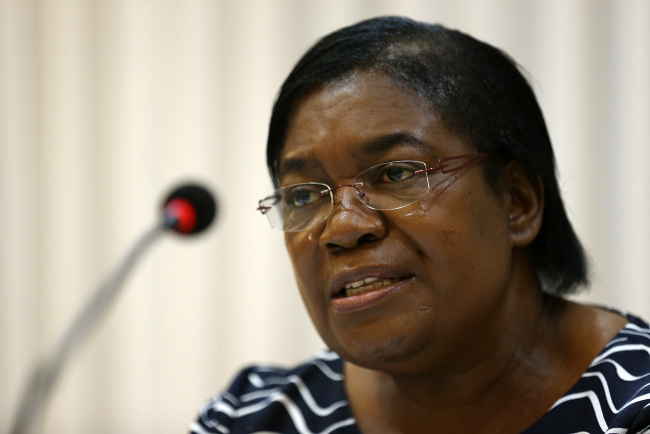Updated : 2013-06-07 20:59
 |
| Margaret Sekaggya. (Yonhap News) |
Sekaggya had just competed a 10-day fact-finding mission to South Korea which is more used to seeing human rights criticism directed at neighboring North Korea.
The South’s national security law was enacted in 1948 to protect the fledgling state from infiltration by the communist North.
It prohibited the printing, distribution and ownership of any material deemed “anti-state” and outlawed any organization advocating overthrow of the government.
“I have been acquainted with the national security act which, despite the fact that it has been amended on several occasions, still appears seriously problematic for the exercise of freedom of expression,” Sekaggya said.
Citing instances where the act had been invoked against human rights groups who have expressed criticism of government policies, she urged the government to clearly define the legal provisions in the law.
It should then be applied only “when is strictly necessary in order to avoid criminalization of activities undertaken in defense of human rights”, she told reporters in Seoul at the end of her mission.
Amnesty International, in a report last year, accused South Korea of systematically abusing the act in order to stifle debate and silence political opposition.
The report highlighted what it described as an emerging trend for invoking the law against individuals and groups that had no tangible pro-North Korea stance.
Sekaggya also expressed concern about the existence of defamation as a criminal offence that carries heavy fines and prison sentences in South Korea.
“The criminalization of defamation leads to a considerable reduction of the space to exercise the fundamental right to freedom of expression, which is a key right to claim other rights,” she said.
“This has a chilling effect and leads to self-censorship by certain human rights defenders,” she said.
Sekaggya also urged Seoul to ratify U.N. treaties on migrant workers, saying they faced discrimination and abuse in South Korea, with unpaid wages and difficulties in accessing social welfare. (AFP)



No comments:
Post a Comment